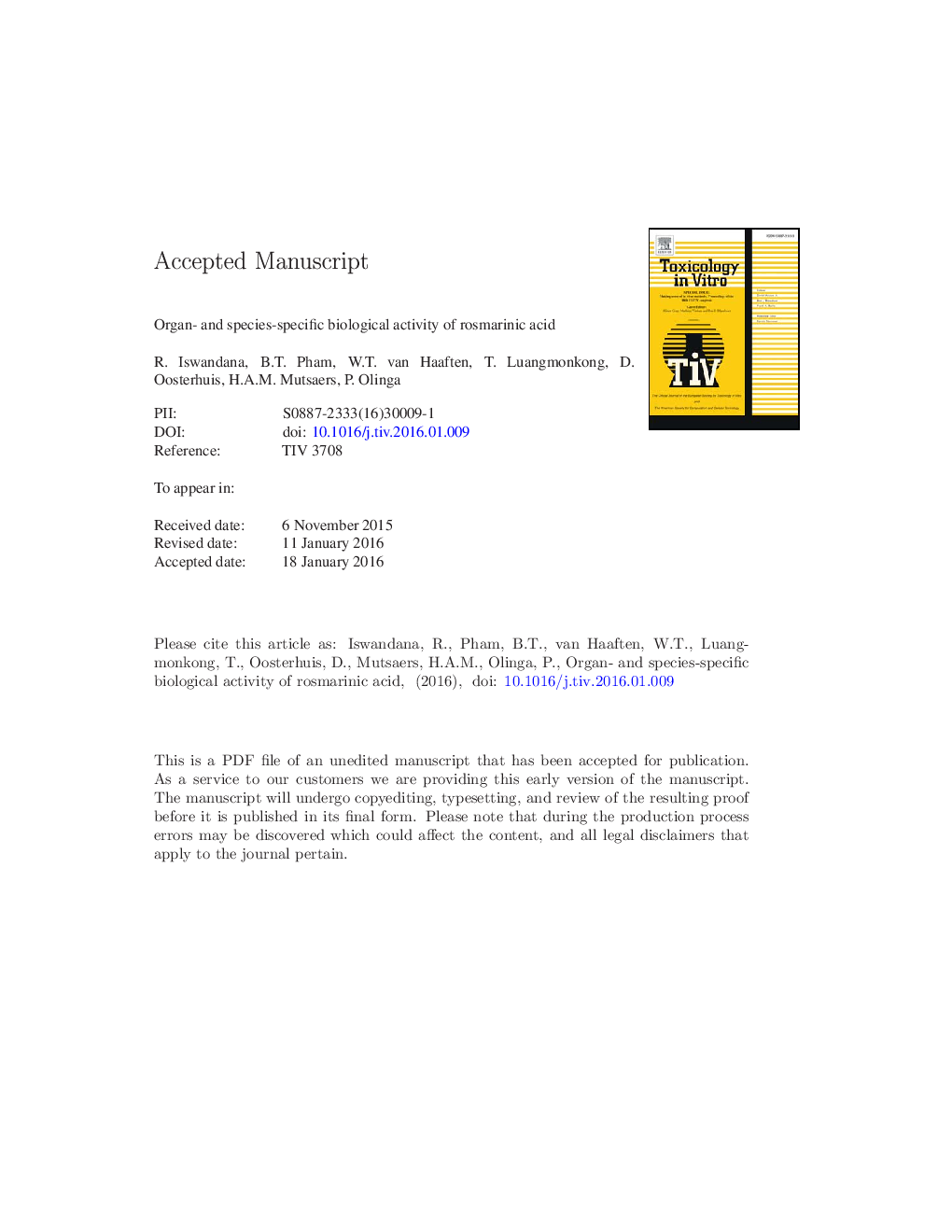| Article ID | Journal | Published Year | Pages | File Type |
|---|---|---|---|---|
| 5861262 | Toxicology in Vitro | 2016 | 23 Pages |
Abstract
Rosmarinic acid (RA), a compound found in several plant species, has beneficial properties, including anti-inflammatory and antibacterial effects. We investigated the toxicity, anti-inflammatory, and antifibrotic effects of RA using precision-cut liver slices (PCLS) and precision-cut intestinal slices (PCIS) prepared from human, mouse, and rat tissue. PCLS and PCIS were cultured up to 48 h in the absence or presence of RA. Gene expression of the inflammatory markers: IL-6, IL-8/CXCL1/KC, and IL-1β, as well as the fibrosis markers: pro-collagen 1a1, heat shock protein 47, α-smooth muscle actin, fibronectin (Fn2) and plasminogen activator inhibitor-1 (PAI-1) were evaluated by qPCR. RA was only toxic in murine PCIS. RA failed to mitigate the inflammatory response in most models, while it clearly reduced IL-6 and CXCL1/KC gene expression in murine PCIS at non-toxic concentrations. With regard to fibrosis, RA decreased the gene levels of Fn2 and PAI-1 in murine PCLS, and Fn2 in murine PCIS. Yet, no effect was observed on the gene expression of fibrosis markers in human and rat PCIS. In conclusion, we observed clear organ- and species-specific effects of RA. RA had little influence on inflammation. However, our study further establishes RA as a potential candidate for the treatment of liver fibrosis.
Related Topics
Life Sciences
Environmental Science
Health, Toxicology and Mutagenesis
Authors
R. Iswandana, B.T. Pham, W.T. van Haaften, T. Luangmonkong, D. Oosterhuis, H.A.M. Mutsaers, P. Olinga,
